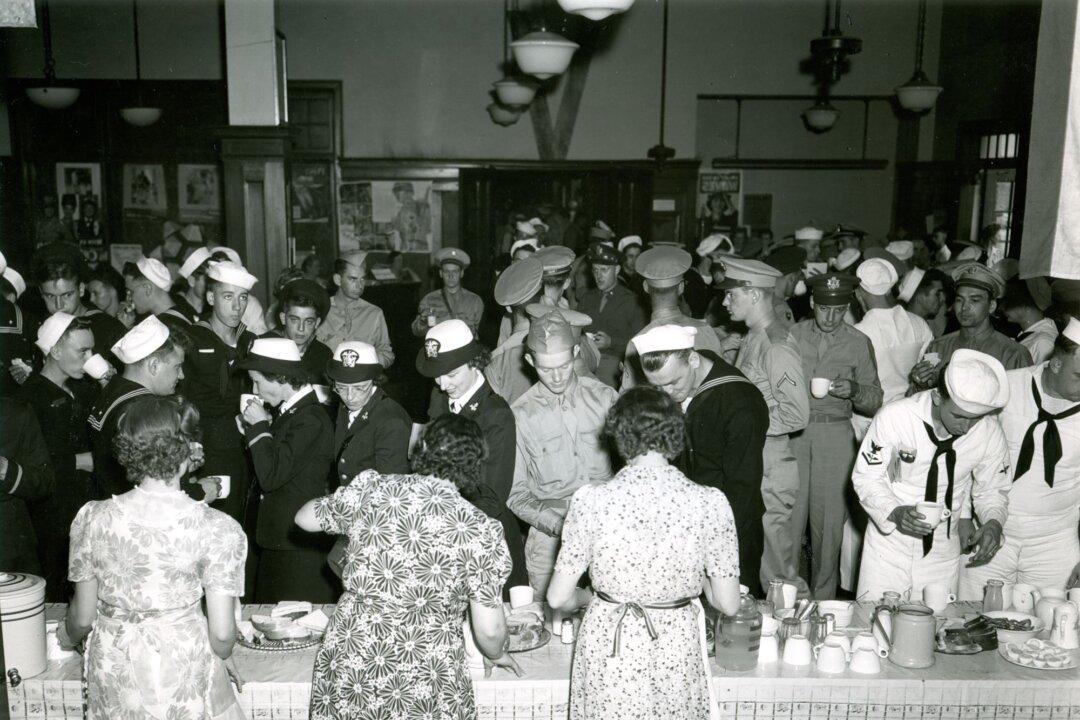Our story begins with a case of mistaken identity.
Just after the Japanese attack on Pearl Harbor on Dec. 7, 1941, Rae Wilson, age 26 and a store clerk, heard that her brother’s National Guard Company D was due to pass through town on Dec. 17. She spread the word around North Platte, Nebraska, population 12,000, and was stunned when hundreds of people bearing gifts and food for the troops showed up at the train station. They waited eagerly for the arrival of Nebraska’s Company D, only to discover, when the train arrived, that the troops aboard were Company D but of the Kansas National Guard.






